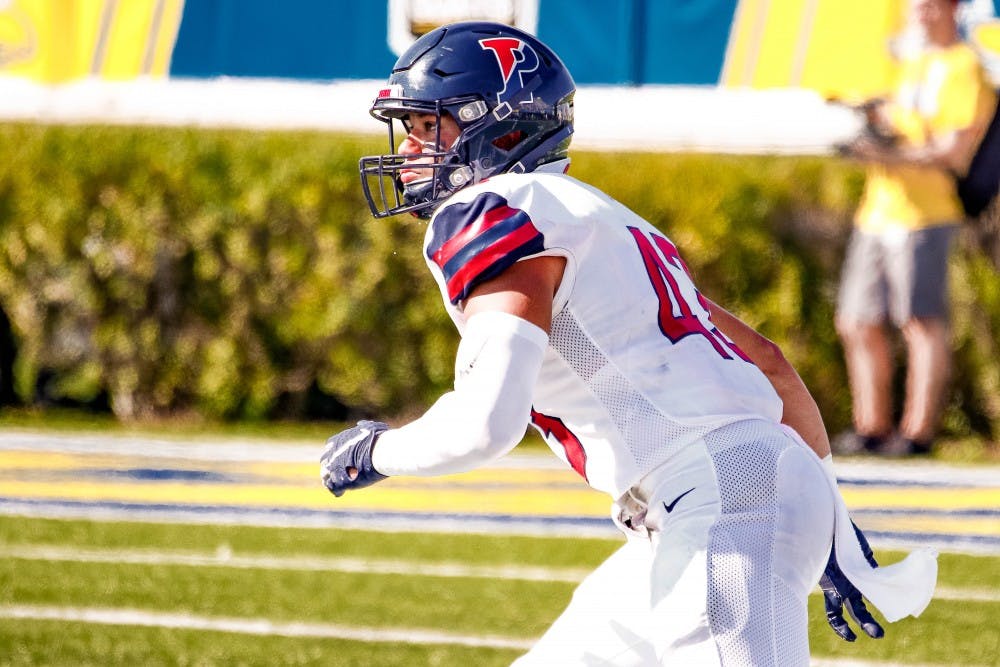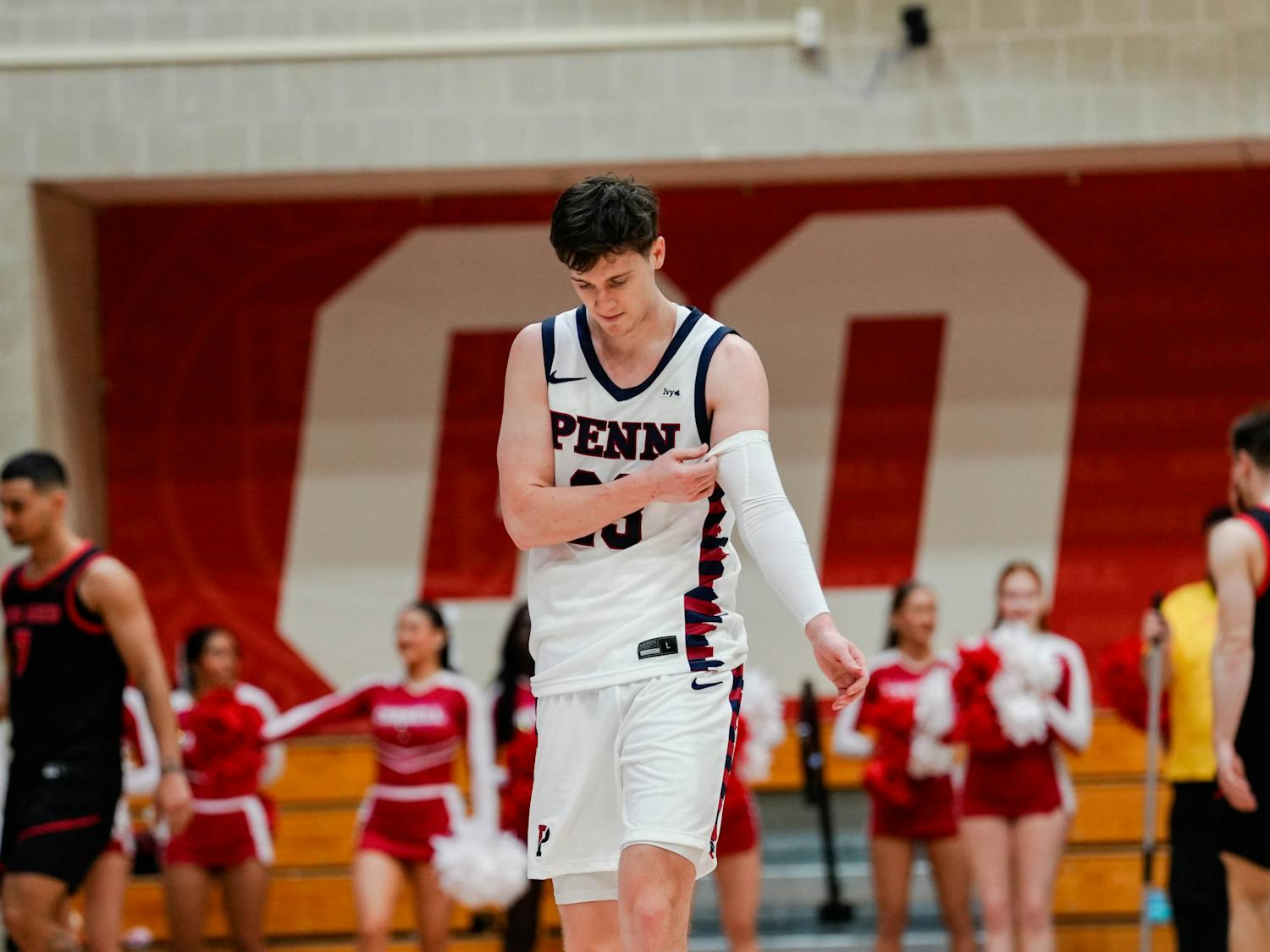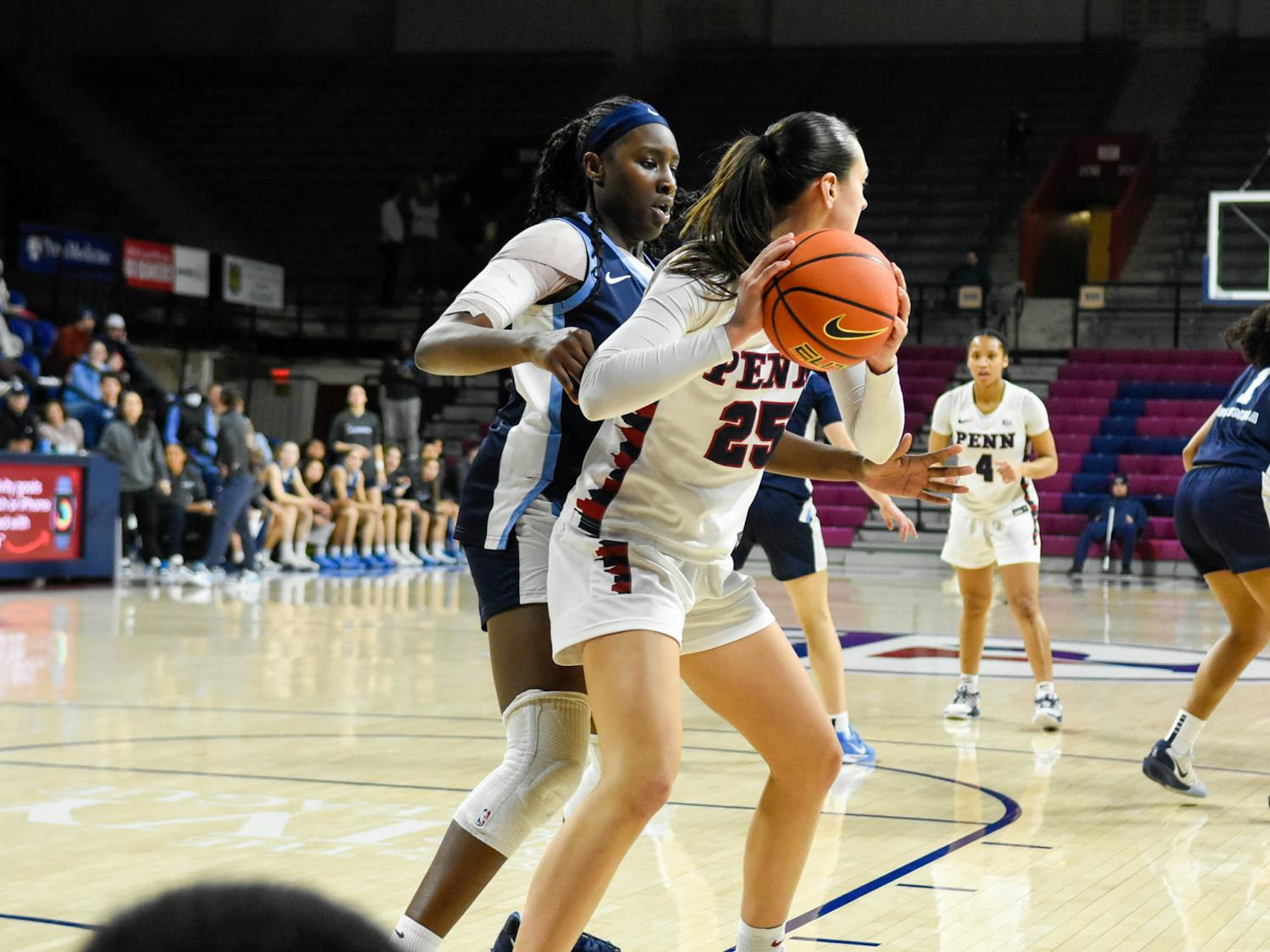For each of its away games, Penn football can include 62 players in its travel plans to compete in a given week. For home games, though, that number rises to over 100, when the Quakers have the entirety of the roster at their disposal. Who makes up that group of 40-odd players — its members tend to vary on a weekly basis — who don’t hit the road with their teammates? Meet the scout team.
For various reasons, including both physical preparedness and familiarity with the Penn playbook, most freshmen don’t arrive on campus already fit to meet the physical and mental demands that come with being a college football player. Whether it’s the speed and complexity of the game or the size of the players on the other side of the ball, the majority of football players undergo significant growth and adjustment periods before ever seeing the field in competitive games.
Like many players, senior linebacker Sebastian Sanchez spent the early stages of his career representing the Red and Blue getting reps with the scout team during practice. While he may not have been preparing to get playing time on Saturdays during that time — much of the scout team’s job is to imitate the schemes of Penn’s opponents each week — he understood the important role that the scout team plays, not only in helping the Quakers’ starters to get ready for their weekend matchup, but also in developing players into future difference-makers for the Red and Blue.
“You’re basically just mimicking what team you’re playing that week, so at the same time you’re playing and you get to do real, live reps,” Sanchez said. “It definitely helps, because you’re learning the playbook and you also get live reps … Freshman year, you don’t really expect that much. You’re in a whirlwind.”
When they aren’t included in the traveling squad, players don’t have athletic responsibility while the team is away. They have extra time to rest up and take care of schoolwork, a welcome respite from the rigor that comes with a week in the life of Penn football.
“[As a freshman,] it’s kind of nice, they’re gone, they leave Thursday or Friday, and you have no responsibility until they come back on Sunday,” Sanchez said. “You can stay in bed, you can watch college football, you can do your homework if you have homework … But once you get called up, it’s really exciting.”
Sanchez traveled with the team for the first time midway through his sophomore year, and it was a trip to Cambridge, Mass. for a matchup against Harvard. He remembers the experience vividly.
“It was freezing, but none of the guys were wearing sleeves, so I was like, ‘Alright, I’ll tough it out,’” Sanchez said. “It’s a little different when you’re not playing at all — you’re just standing on the side — and I got one play the whole time, but it was the best. I still remember it.”
RELATED:
Penn football faces Columbia this weekend seeking first Ivy win of the season
Behind Karekin Brooks' four scores, Penn tops Sacred Heart, 38-24
Senior running back Dante Moore first went on the road with the Quakers for their 2019 season-opener at Delaware, and similarly, he went into the game with great anticipation. His first touches didn’t come until a few weeks later against Dartmouth and Sacred Heart, but one can hardly be blamed for getting few opportunities when backing up All-Ivy running back Karekin Brooks, who leads the Ivy League in rushing.
Unlike Sanchez, though, Moore spent his first three years practicing with the scout team. He expressed his gratitude for the scout team experience, and he’s not alone in feeling grateful.
“[The scout team is] a vital piece of our development and preparation,” coach Ray Priore said. “We need the effort from them to show the looks that the other teams do. It’s not a glamorous job by any stretch because you’re not really playing for Penn, but you sure are helping us prepare for the upcoming week.”
Priore emphasized that most football players, whether at the high school or college levels, spend time playing scout team football before graduating to more visible roles. With few exceptions, players need time to acclimate to tougher, more sophisticated competition.
A prime example of that progress is sophomore wide receiver Ryan Cragun, who leads the Red and Blue with 340 receiving yards and two touchdowns in two games played. Now a fixture of Penn’s offensive game plan, Cragun spent his freshman year as an actor, imitating opposing teams’ schemes.
“Ryan Cragun last year was killing us on scout team,” Priore said. “He was catching every ball in sight. He was driving us absolutely nuts, which is a great sign for the future. You get a chance to see really talented kids develop, because the only way to get better is to do it.”
While winning games is certainly Priore’s ultimate goal, observing the development of his players is for him as rewarding as anything. He’s well aware of the fact that players arrive at Penn at differing levels of readiness to play Division I football: every now and then, a freshman will take on a starring role, but even more often, players will spend their entire careers taking scout team reps.
Both types of players are integral to the program’s success. The traveling squad couldn’t prepare as well without going against the scout team each week, and the scout team players wouldn’t develop as quickly without the challenge of facing their older, more experienced teammates.
Reflecting on his past role as a scout team player and the group’s impact as a collective, Moore encapsulated the value of the players who stay at Penn on road weekends: “You put yourself in a position to make plays, regardless of whose plays your making, whether it’s your team’s plays or the other team’s.”









